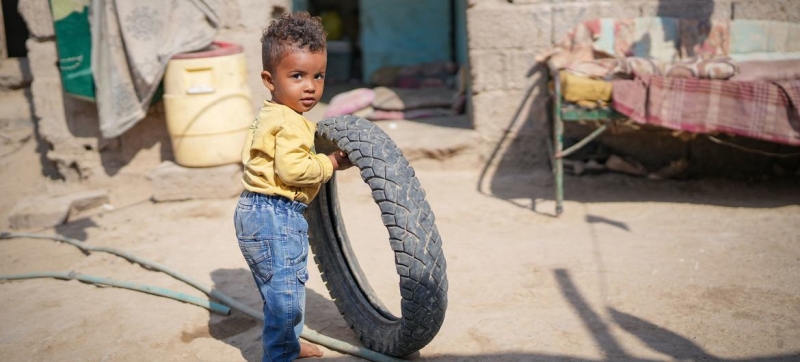
Half of Yemen’s children under five suffer from acute malnutrition. UN: Humanitarian situation in Yemen worsening Peace and security
A reduction in the intensity of hostilities in the Middle East, including an end to attacks by Yemeni Ansar Allah (Houthis) on shipping in the Red Sea and targets in Israel, could pave the way for further de-escalation. However, despite the fragile ceasefire, the humanitarian situation in Yemen remains dire. UN Special Envoy for Yemen Hans Grundberg and UN Emergency Relief Coordinator Tom Fletcher told the Security Council on Thursday.
“We welcome this respite, but we must also recognize the scale of the challenges still facing Yemen,” Grundberg said.
Detentions of UN staff and armed clashes
He recalled the new detentions of UN staff by the Ansar Allah movement and the tragic death in custody of a representative of the UN World Food Programme (WFP). Grundberg called for an immediate investigation into the incident and the unconditional release of all detained international staff.
The Special Envoy noted that armed clashes continue in the country. He reported on the movement of military equipment and attacks by the Houthis in several regions, including Marib, Taiz and Shabwa. Grundberg warned that any military action and countermeasures could lead to further tensions and the risk of sliding into conflict.
The humanitarian situation is worsening
He also stressed that the economic situation in Yemen is rapidly deteriorating. The rial’s devaluation has put basic goods out of reach for most of the population. Government-controlled areas have been experiencing lengthy power outages, with the major city of Aden recently without power for three days.
Grundberg noted that his office maintains a dialogue with civil society, including youth and women entrepreneurs. However, their participation in the country’s economic life is hampered by bureaucratic barriers and limited access to banking services.
Tom Fletcher reported that 19.5 million people in Yemen need humanitarian assistance, half of children under five suffer from acute malnutrition, and every hour five children die from preventable diseases. 3.2 million girls and boys are out of school.
Lack of Funding and Insecurity
One of the main challenges to operations in Yemen is the lack of funding. According to Fletcher, humanitarian organizations are overwhelmed and underfunded.
Aid to Yemenis is also facing security obstacles. For example, the UN was forced to temporarily suspend operations in Saada province because its staff were exposed to serious risks there.
Fletcher also stressed that any political or military decisions should not cut off civilians from humanitarian supplies.
“Any serious disruption to this [aid] channel – commercial or humanitarian – will have a cascading negative impact on Yemeni communities already on the brink of collapse,” the Emergency Relief Coordinator said.
